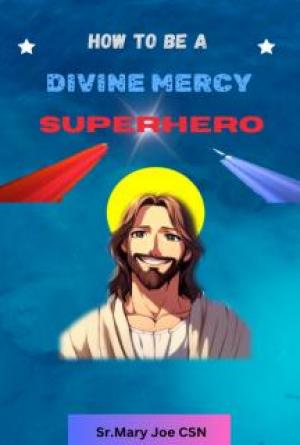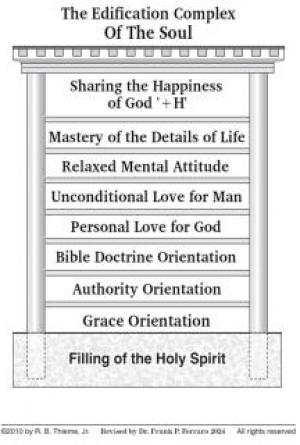XXVI
THE UNOARED SEA
EACH one spends his childhood playing upon the golden sands of an unoared sea, over which in the after years he must find his way to shipwreck or safe harbor.
How little does childhood in its helplessness know of life! Pleased with simple things, it greets the world with gladness, and shouts for very joy when finding a tinted shell or bit of seaweed. With spades of tin it undertakes to dig a hole “clear through the earth,” and smiles in contemplation of a vision of the Chinese sky. With chains of sand it undertakes to bind the rushing waters of the tide which granite cliff and flinty rock cannot subdue. The child undertakes great things while he himself is not strong enough to withstand the smallest wave, but, leaving his unfinished task, runs homeward at the coming of the tide. The waves roar with laughter and the spray sparkles with merriment as they destroy the feeble efforts of his puny hands. Childhood knows little of the unoared sea of life whose marvelous power of wave and tide threatens to destroy all the childish and manly efforts of his life.
The desires of the sea may be fulfilled. With youthful enthusiasm and unguarded courage he may make fatal venture and be lost. There are many such of wholesome soul and worthy purpose whose most cherished hopes and plans came to shipwreck and disaster. The seas of life are strewn with wreckage. Yet one must not be pessimistic and forget that the raging sea is not omnipotent. With all its wild dashing waves and boisterous winds it is not as strong as that little lad may become. The weakest child may yet be able to dig a pit large and deep enough to bury all the swollen waves; and build a cable of sand strong enough to bind securely the rising and the falling tides. Some day, over the calm and quiet waters of a perfectly conquered sea, this tiny lad may pass into the harbor of safety and success.
Man was not made for the sea, but the sea was made for man. Man was created with the gift of complete dominion over all the world in which he finds himself. Standing like a discoverer upon the shores of his own unoared sea of life, it is his to conquer, for each individual faces a sea newly created, whose waves have never been cut by the prow of any boat. No two people sail the same sea. Each person faces a life as original as it is unknown, but one that is singularly suited to himself. Age may be enriched with much dearly bought and valuable experiences, and be most helpful in counseling youth, but age can never fully understand the child, or youth, who stands upon the sun-kissed sands of the unoared sea of his own individual life. The beauty and pathos of life is that each one must solve the problem for himself.
This does not mean that the training and counseling of youth should be neglected. The ennobling influences of a godly home with Christian parents; the steady, guiding hand of school and college; the inspiration of good books and imperial thinking, as well as the soul-strengthening forces of the church, are all of most vital importance. They should never be omitted from any life. These are things to which each child has an unquestioned right. All the forces for good, of earth and sea and sky, must be centered upon the ambitious but ofttimes thoughtless youth, that he may recognize and faithfully employ the agencies created for his service and success.
The best that education can do is to help the individual to help himself. Education is not a compass by which to steer his craft; it is not the rudder that determines the course; neither is it the propelling power that drives it through the waves against an adverse wind. God has made especial provision for these equipments. The chart is the inspired Word; the compass, a divinely guided conscience; the rudder, a will surrendered fully to the will of God; while the power that propels lies in the skillful using of two plain oars that God has placed within his easy reach. Education is the intellectual training that enables him to use these agencies in the most efficient manner.
Many centuries of experience and experiment have produced no labor-saving machinery for reaching the harbor of success. If one would make successful voyage, he must be willing to grasp the oars with his own hands, bend his back to heavy strain, employing all his mental, physical, and spiritual power to the task of making good. It is not a joy ride or a pleasure trip. There is a joy unspeakable in the task, but it comes not from without but from the consciousness within that one is winning in a moral strife. This consciousness will be found to be the chiefest of life’s joys. None shall excel it this side the welcome we shall receive when safely anchored in the presence of our God, and even then this consciousness will be the inspiration of the heavenly song. Life must be considered not so much a pleasure as a struggle, but a worthy struggle, that sends the blood tingling through the veins, and builds the tissues of a noble character.
After the training in life’s fundamentals the choosing of the oars is the most important thing. The craft in which one sails is character, built to weather any storm on any wind-swept sea. The haven is God’s homeland of the soul. The oars are varied, and the success or failure of the voyage, the safety or shipwreck of character, a victorious landing or sinking beneath the waves of obscurity, depend entirely upon the choosing of these oars by means of which his life energies are to be directed.
To this end all the educational influences of home and school and college must be directed. Youth must be taught the value of an intelligent choice of the instruments through which his powers shall flow. He must not be led by fancy or prejudice or by the words of dishonest men who have oars to sell. He must not choose by the color of the paint or beauty of their decorations. He must not listen to the honeyed words of an evil one whose sole purpose is his destruction. Leaving the sands of childhood and starting voyage upon the unoared sea of life is a moment in which all earth and heaven are concerned, and therefore the choice of oar must not be left to chance or fortune. He must know that all the proffered oars are not alike, and that false teachers profit from the wreckage of the boats they set adrift. He must know that a broken oar means a drifting boat, and that no drifting boat can ride a storm-tossed sea. All the difference between heaven and hell is in that moment of decision when he picks up his chosen oars and begins to use them as his own.
There are two oars that never fail when once grasped by a hand that is firm and true. The first oar is called Virtue. With this oar of moral excellency, of pure heart and clean hands, with this oar of real integrity of character and purity of soul, man’s energies are never wasted as he makes battle against opposing powers. The real sinfulness of impurity is its resultant waste of strength. Behold the wan faces, sunken eyes, wasted energies, emaciated forms, staggering steps of weakness, and the uncertainty and indecision of character, and one sees the consequences of abusing the laws of purity. But virtue means more than purity of body, it means absolute cleanliness of heart and mind and purpose.
The second oar is Righteousness. Unrighteousness is the abuse and waste of power. The New Testament word for sin is “missing the mark,” energy that is wasted by not being carefully and accurately directed. To be upright in life, free from wrong and injustice, to yield to everyone his just dues, is to have a means for directing strength and vital energy that never fails to bring the desired result.
Two oars—“Virtue,” rightness with God; “Righteousness,” rightness with man—two oars that have never been known to break no matter how much a great soul bends them in his battle with the waves. Two oars that have never yet failed to bring the ship to harbor.
This, then, is the opportunity of the church, not to manufacture oars, but to aid youth and maiden to choose the ones that God hath made. They are not new inventions, but as old as God and rugged as the Hand that made them. Firmly grasped and resolutely employed, the harbor is made in safety, although the voyage be upon a hitherto unoared sea.







